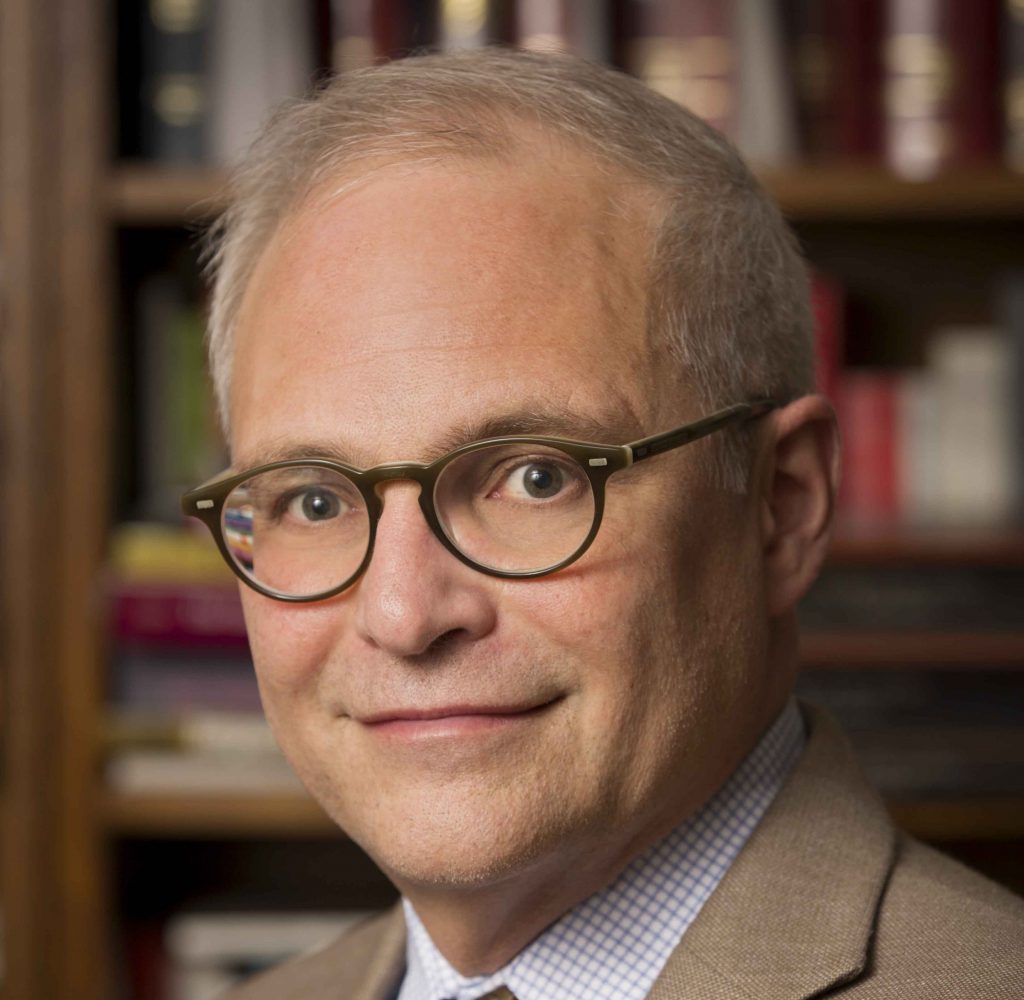Yale law professor James Q. Whitman lectured on two early concepts of property ownership—that of owning land and that of owning human beings—at the Clough Distinguished Lecture Series in Jurisprudence at BC Law on September 18.
He called owning humans and owning land the two primitive modes of imagining property. “They are primitive in the descriptive sense that they are root conceptions of ownership, from which other conceptions have been generalized,” he said. “They are also primitive in the normative sense that they are both conceptions of ownership that stand in some tension with ideals of civilization and rule of law.”
He provided historical anecdotes of the cultural attributes of these imagined views in Europe, Africa, and America, explaining that the distinction between the notions of property ownership in Europe, for instance, weren’t based so much on economics as on the “difference in the psychology of ownership.” Whitman, the Ford Foundation Professor of Comparative and Foreign Law at Yale, said, by way of explanation, that the Romans considered themselves the masters of slaves while the English viewed themselves as the owners of real estate.
Citing 18th century English jurist William Blackstone and drawing on centuries of thought, Whitman went on to provide a relevant and nuanced perspective on the development of property law.
BC Law’s Legal History Roundtable co-sponsored the event with the Clough Center for the Study of Constitutional Democracy.


